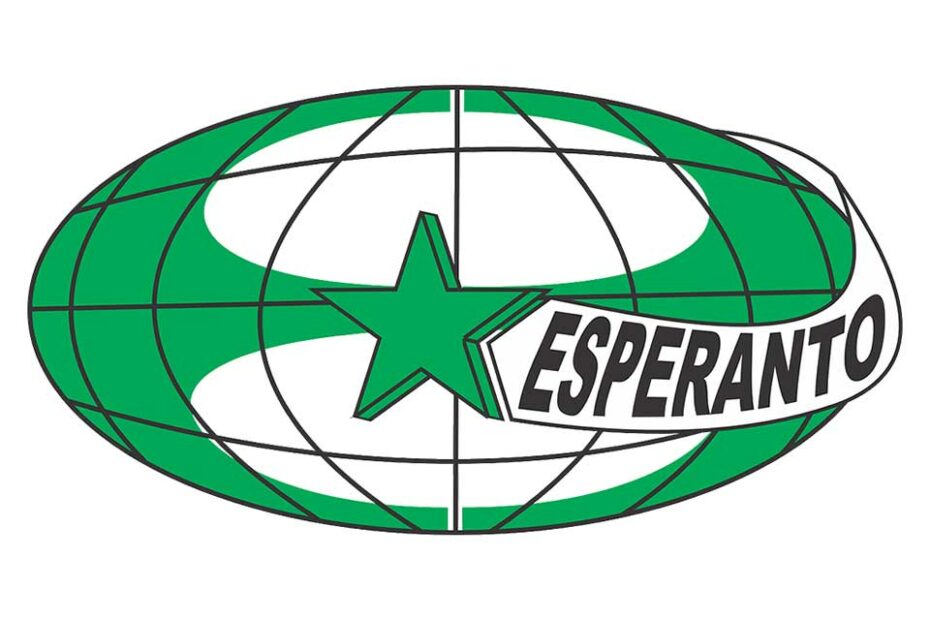Unless you count modern Hebrew as a constructed language, Esperanto is the most widely spoken constructed language. Here are a few good reasons to learn Esperanto.
1. Grammar/Words are Easy
Esperanto is a very easy, straightforward language. The grammar and words are easy to remember. The grammar in Esperanto is relatively simple and completely regular. There are no exceptions to this rule. You will not encounter an irregular plurals, prepositions, or past tenses. In addition, the pronunciation is really easy and the writing is phonetic.
When it comes to new words, Esperanto has a regular way to derive them. When you negate a word in English, you add prefixes such as un-, dis-, non-, im-, il-, in-, ir-, and more. Non-native speakers have to remember which prefix goes with which word when they are saying them. Esperanto only uses ne- to make them negative. You can express hundreds of English prefixes/suffixes with just a few dozen unambiguous ones in Esperanto.
Finally, when it comes to words, the root words in Esperanto have been selected in such a way that they are easily recognizable and easy to remember for anyone who speaks a European language.
2. The Time it Takes to Learn Esperanto
You’ll only need about 1/10 of the time that it would take you to learn a language such as German or Spanish to become proficient in Esperanto. For example, if you want to learn German, it will take you 3-10 years to become proficient, depending on how much effort you put into it. However, you can become fluent in Esperanto in about 3-12 months with the same effort.
3. Interest in the Experience of a New Language
If you are just interested in the process of learning a new language, since Esperanto is so easy, it’s a great one to start with. There are some people out there who just want the experience of learning a foreign language and don’t have any other motivation, Esperanto is a great option. After all, if you’re an English speaker in the U.S., it’s easy to be motivated to learn Spanish because there are so many people who speak Spanish.
As we have already mentioned, Esperanto is one of the easiest second languages to learn, so this may be a great place to start if you want to experience learning a foreign language, and if you decide in the future to learn another natural language, having the foundation of knowing Esperanto will make the transition easier.
4. A Great “Stepping Stone”
If Esperanto had been constructed in modern times, the vocabulary would have likely looked a bit different. There are a few roots that are not immediately comprehensible to English speakers such as “tago” from German Tag meaning “day” – a word such as “dejo” (day-oh), because it would be intelligible for speakers of English and the other romance languages.
While theoretically this does mean that Esperanto is a little harder than it could have been, it does bring in a variety of vocabulary from the other European languages in an easy to understand- and remember- context. Therefore, if you do learn Esperanto first, the transition will be much less overwhelming than if you immediately tried to jump into learning another language. As a bonus, if you already speak more than one language, you’ll be much more likely to understand most of the roots of Esperanto right away.
5. Can Help You Learn Other Languages Quicker
One of the reasons to learn Esperanto is that it helps with learning other languages. While it may seem strange, if you’ll take about a year to learn Esperanto and then spend 4 years learning another language, you’ll end up speaking that other language better than you would if you spent 5 years studying that second language.
Studies have proven this because when you learn Esperanto, you learn grammatical concepts in a way that is pure and easy-to-remember. In the natural languages, grammatical concepts are always riddled with irregularities and it will take you lots of time to understand the principles behind this without getting any clear examples.
It’s a lot like learning piano. If you take the time to master the basics with easy etudes, then it will take you less time to learn overall. In addition, learning Esperanto actually teaches you how to learn other languages. You’ll have a better understanding of how your brain works, which will make you much more efficient when learning other languages.
6. Help You Make New Friends
In almost every single big city in the world, you’ll find a small but enthusiastic group of people who speak the language of Esperanto. This makes learning Esperanto a bit of a hobby like skiing or playing chess. Many people who speak this language have emphasized that learning Esperanto has helped them make new friends.
Of course, it depends on your nature as to whether or not finding a hobby with the main benefit of helping you make friends is the right thing for you. If you’re looking for a hobby that is much more practical, you might want to learn a natural language such as German or French. However, you must be prepared to spend a lot more time in the learning process before it starts being useful.
7. Personal Development Just Feels Good
Another on of the reasons to learn Esperanto is the joy your own personal development will bring. One thing is certain, it feels really good to be able to understand another language. This is because at first glance, that other language appears to be a bit exotic – but in our case it really is amazingly easy to learn.
Plus it’s a good feeling to develop as a person. You will grow, have a better self-esteem and will be more respected by others for what you know (and they don’t).
Conclusion
The language of Esperanto is the most widely spoken constructed language, which means it’s not a natural one. It was put together by man to make it easier to communicate across the cultures. This is a great language to learn and this was just a few of the good reasons to learn Esperanto.



